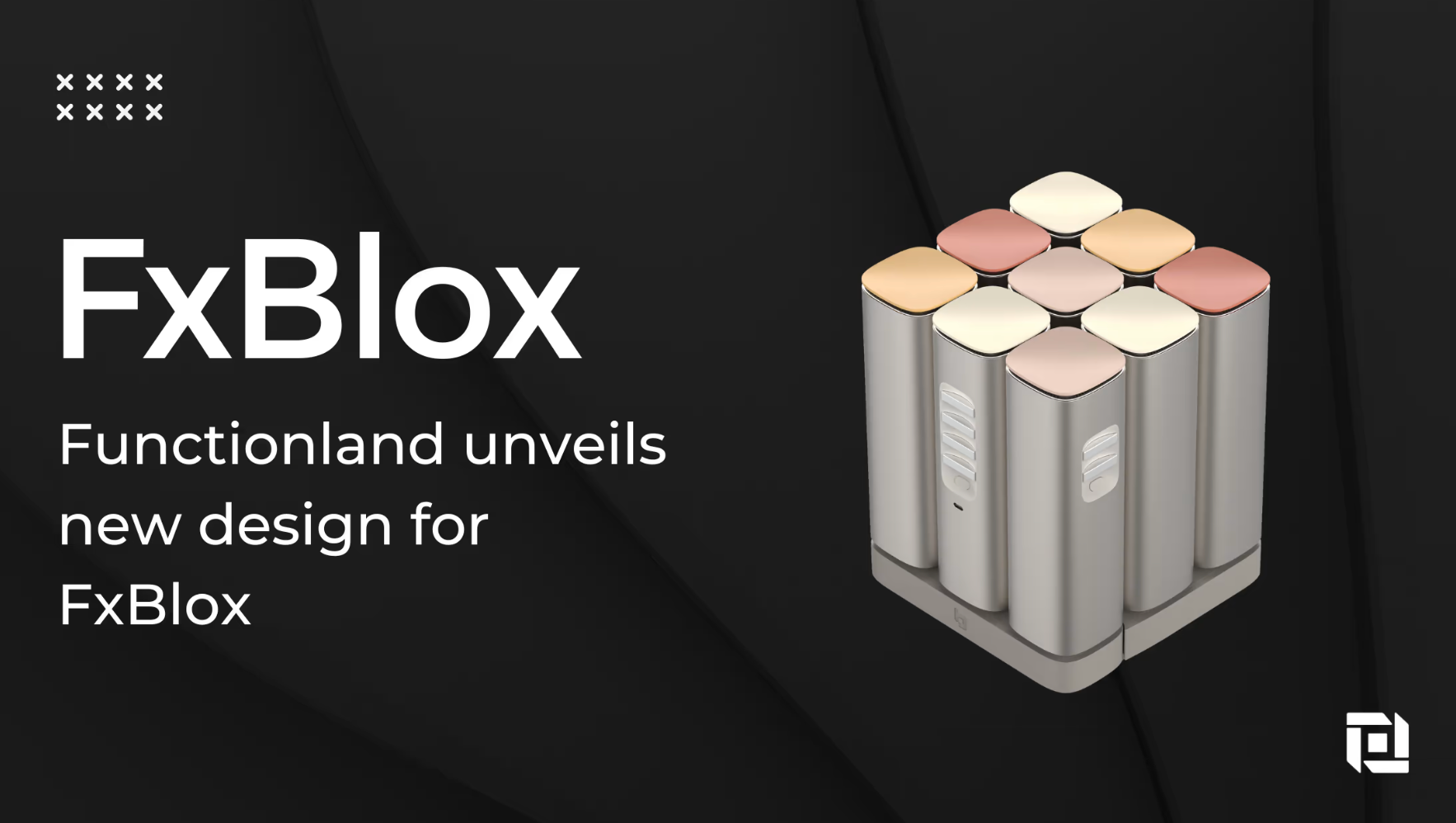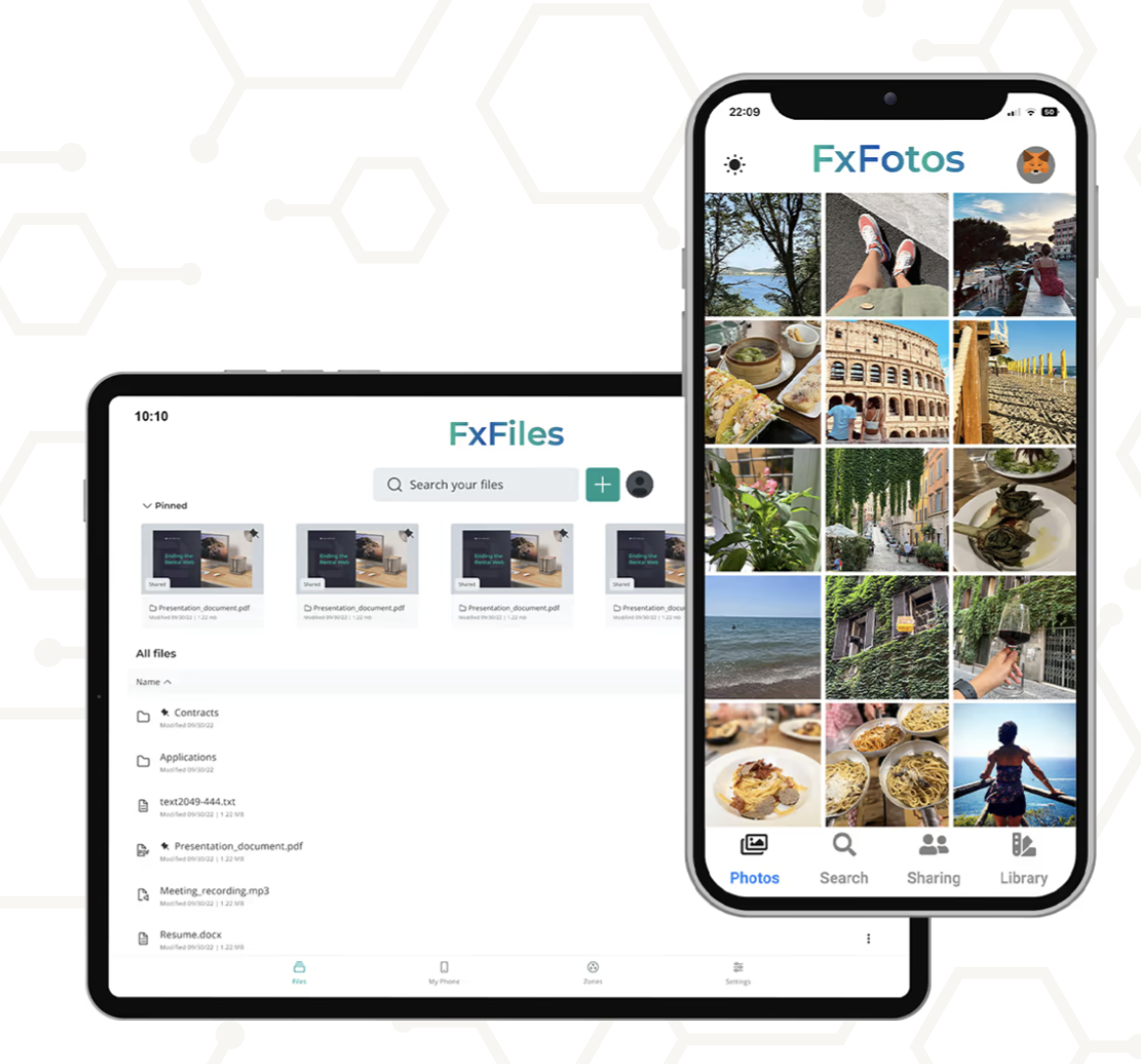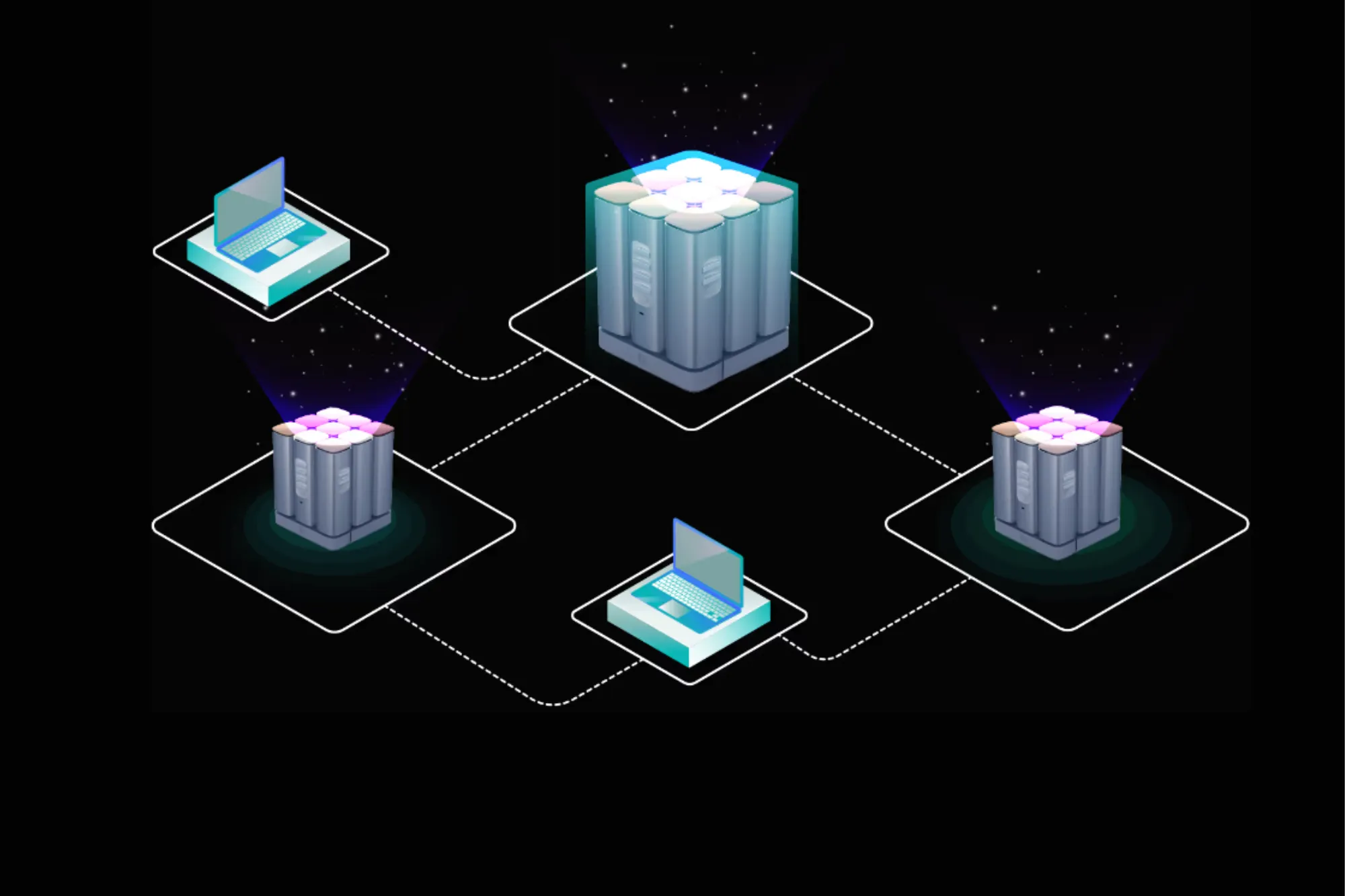Functionland is a decentralized cloud alternative that puts data back in users' hands with personal servers, and profits back in developers' hands through blockchain protocols.
Getting Rid of the Data Middleman
Users today know that if they use a centralized server, there is a good chance that their data is being used to develop and sell them products. Decentralized apps put private data back in users' control, and decentralized storage solutions utilize a network of nodes to keep files accessible (both on and offline) to users. But what if you want to store your personal files yourself and for free? No middleman - just you and your own personal server?
This was the impetus for FxBlox, a storage device that is powered by open source, and built on top of Functionland's Fula Protocol (more on this in a moment).

FxBlox is modular, meaning you can choose how much storage is right for you. Usually cloud storage providers offer either too little or too much storage, making it difficult for developers and users to find a solution that meets their needs. With FxBlox you can have anywhere from 1TB to tens of TB of storage capacity in one unit.
You start with a base tower - the Fula tower for the FxBlox. It includes three USB-C ports and can connect to external devices. Then you add on individual towers for more storage capacity or other features like a hub tower as a docking station.
Users engage with the Fula Network as both resource consumers and resource providers when they own an FxBlox. Owning an FxBlox is not required to access services on the network, but users will have to pay fees to FxBlox owners if they don't have one operating in the network. This incentivizes users to participate in the network so they can break free from storage subscriptions and "end the rental web", as Functionland says.
Fula Protocol
The Fula Protocol enables consumers to replace their central cloud providers with a decentralized alternative built on the IPFS ecosystem by leveraging three sub-protocols: File, Graph, and AI. Each enables users to securely receive and provide resources on the Fula Network.
Importantly, there is an abstraction layer attached to each sub-protocol. This is the final piece in the puzzle for app developers. With the Fula Network handling the back end/server and the FxBlox handling file storage, all you need is to know how to write front end code!
Functionland is currently integrating Fission's WNFS into the Fula Protocol to empower developers with a ready-to-go decentralized and encrypted file system. They created a bridge for rs-wnfs to enable mobile developers to use it in React Native.
WNFS is used on the client side and data is backed up on a network of connected backend devices with Graphsync and libp2p. Backups can exist on a trustless network since only the user has the keys to decrypt the files. So even when part of the network goes offline, the user can still access their data from the backups.
Ehsan, Co-Founder of Functionland, had this to say about why they chose to utilize WNFS:
Functionland is on a mission to put full ownership of individuals' most important digital assets - data, photos, files, etc. - back into their own hands. We use WNFS to ensure data security, because encryption and security play a key role in Functionland's mission.
Fotos
The first dapp to connect to FxBlox is Functionland's FxFotos app. FxFotos is a media gallery app to back up and sync media files. It can use any decentralized wallet for user authentication. As stated previously, when the app is connected to FxBlox no other back end is required and the data is stored locally and (optionally) across the entire Fula Network. The FxFotos app doesn't store any of your data, it only accesses it when you give it permission (by connecting).

Our CEO Boris Mann had this to say about Functionland:
It's awesome to see the IPFS ecosystem being able to adopt and implement protocols together. We've been wanting to see more mobile-first usage of the protocol stack that Fission is working on, and it's great to see Rust WNFS be live in the app store. Congrats on shipping, Functionland team!
Explore FxFotos and Functionland
If you'd like to learn more about Functionland, you can visit their website. The FxFotos app is available in the Google Play and Apple App Store. There is also a file manager app called FxFiles, and plans for an identity/password manager app as well!
